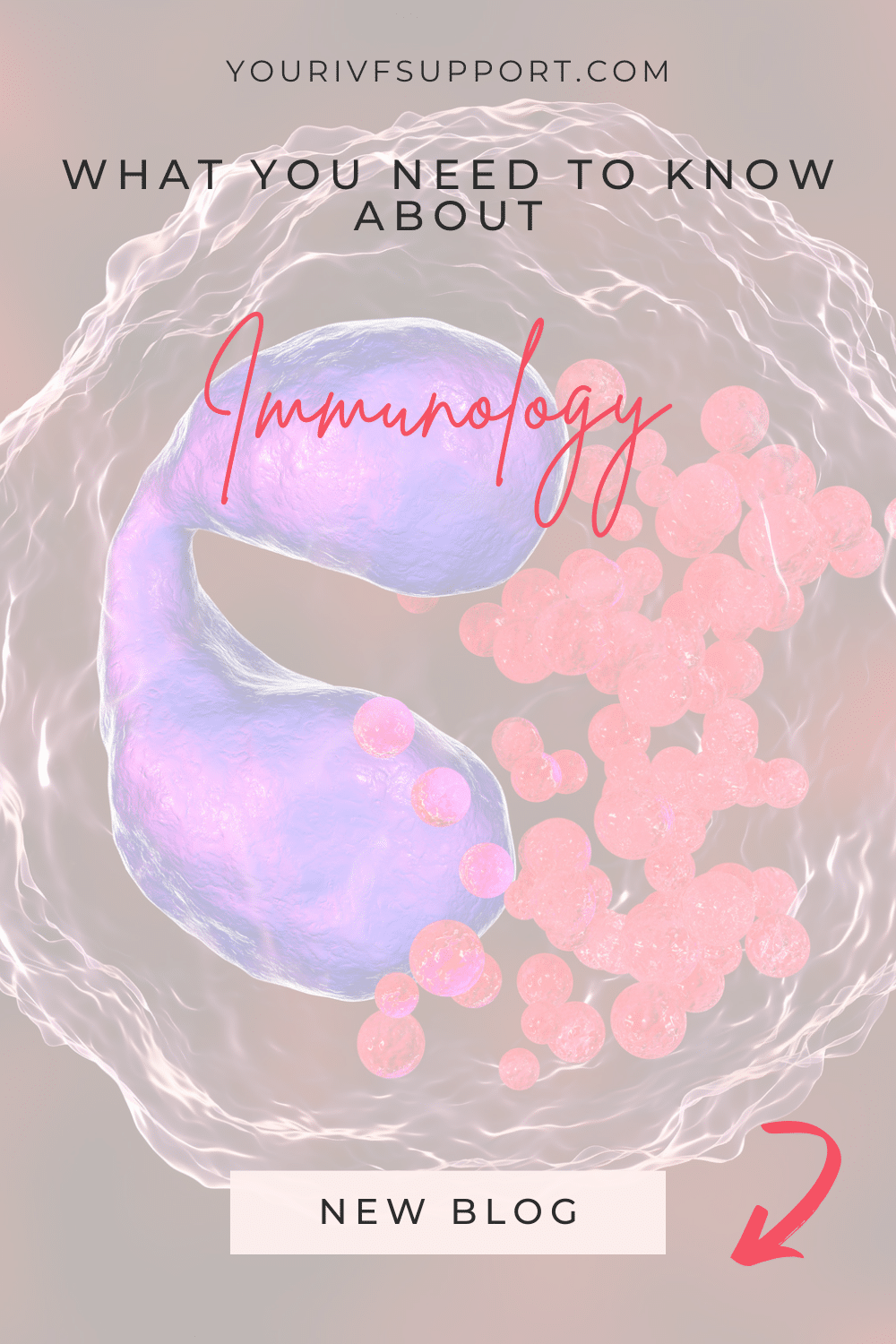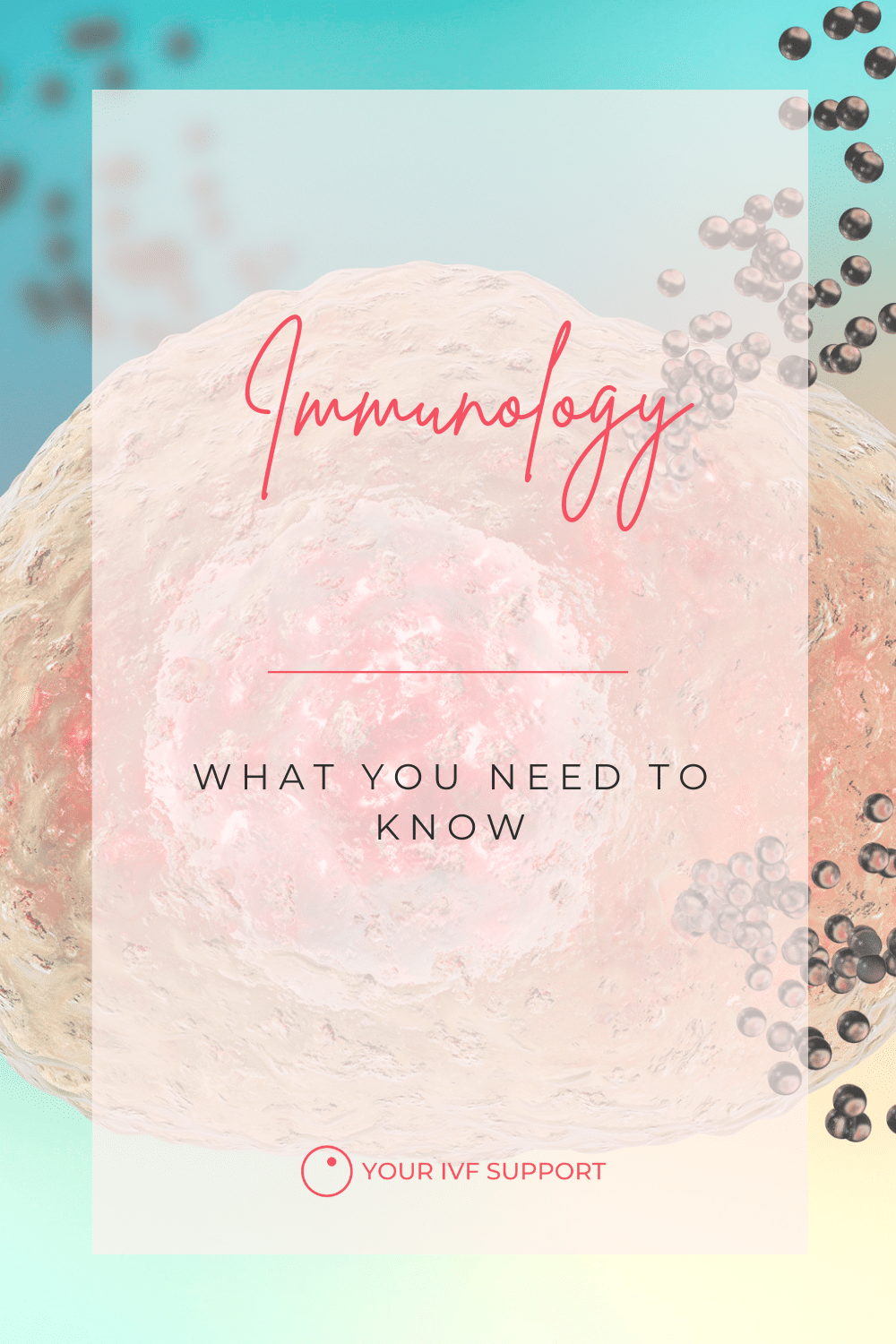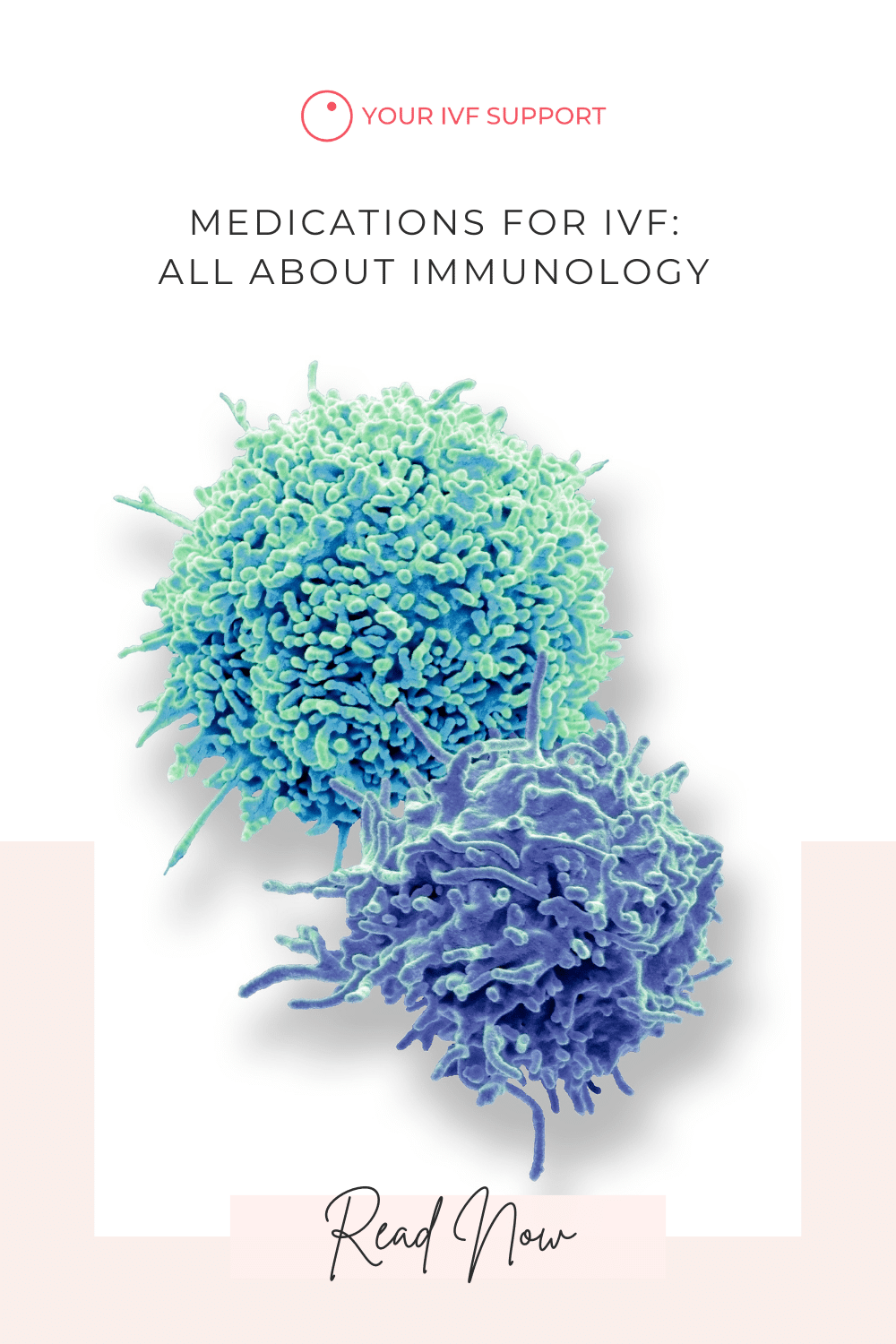If you are on your way to having children, you have come to the right place. In this blog article, we will explore a fascinating topic: immunology in relation to fertility. Immunology plays an important role in reproduction and can have both positive and negative effects on childbearing. In this article we will understand the basics of immunology, explore the role of the immune system in pregnancy, and identify potential immunological disorders that can affect childbearing.
Basics of immunology
To understand the impact of immunology on childbearing, it is important to understand the basics of immunology. The immune system is a complex network of cells, tissues and organs that protects our bodies from harmful substances and pathogens. It recognises and fights potentially dangerous invaders such as bacteria, viruses and parasites.
The immune system has two main components: the innate immune system and the acquired immune system. The innate immune system is the body's first line of defence and responds quickly to threats. The acquired immune system develops throughout life and provides specific defences against certain pathogens.

The immune system and pregnancy
During pregnancy, the immune system plays a critical role in protecting the developing foetus and promoting the growth of the placenta. The immune system must maintain a careful balance between tolerance of the foetus and protection against potential infections.
One of the most remarkable features of the immune system during pregnancy is its tolerance of the foetus. Normally, the immune system would recognise and attack foreign cells, but during pregnancy it suppresses this response to protect the foetus. This mechanism is crucial for maintaining a healthy pregnancy.


Immunological disorders and their effect on fertility
In some cases, however, there are immunological disorders that can affect the desire to have children. One such condition is called 'sperm immunoreactivity' (ISA). Women with ISA produce antibodies against their partner's sperm, causing an immune response that can affect sperm function and fertility. This can lead to infertility or repeated miscarriages.
Another example of an immunological disorder is antiphospholipid syndrome (APS). In APS, the immune system produces antibodies against certain proteins found in the cells of blood vessels. These antibodies can lead to an increased tendency to form blood clots, which in turn can make it difficult for a fertilised egg to implant and can lead to repeated miscarriages.
In addition to ISA and APS, there are other immunological disorders that can affect childbearing, such as autoimmune diseases and certain infections. It is important to identify these disorders and initiate appropriate treatment to improve the chances of a successful pregnancy.
" During pregnancy, the immune system plays a critical role in protecting the developing foetus and promoting the growth of the placenta. The immune system must maintain a careful balance between tolerance of the foetus and protection against potential infections."
Diagnosing immunological disorders
Diagnosing immunological disorders associated with childbearing requires a thorough examination and medical history. Your doctor may carry out blood tests to identify specific antibodies or markers of inflammation. Other specialised tests, such as immunophenotyping or natural killer (NK) cell testing, may also be needed to make an accurate diagnosis.
Close collaboration between gynaecologists/reproductive health specialists and immunologists is essential to diagnose immunological disorders and identify appropriate treatment options.



Treatment options for immunological disorders
Treatment for immunological disorders associated with childbearing can include a variety of approaches. One common treatment is immunosuppression, in which drugs are used to suppress the immune response and improve tolerance to the fetus. This may include corticosteroids or immunoglobulins.
In some cases, immunotherapy may also be considered. This involves introducing small amounts of sperm or other immunologically relevant substances into the body to gradually accustom the immune system to them and reduce the formation of antibodies.
The choice of treatment depends on the specific immunological disorder and the individual needs of the woman. It is important to seek advice from experienced professionals to find the best possible treatment option.
Supporting the immune system naturally
In addition to medical treatment, there are natural ways to support the immune system and improve the chances of a successful pregnancy. A healthy lifestyle, a balanced diet and regular exercise can help boost the immune system.
A balanced diet rich in fruit, vegetables, whole grains, lean protein and healthy fats provides important nutrients needed by the immune system. Antioxidants such as vitamin C, vitamin E and beta-carotene can help reduce cell damage and boost the immune system. You should also make sure you get enough vitamin D, as vitamin D deficiency has been linked to increased miscarriage rates.
Regular physical activity can stimulate the immune system and have anti-inflammatory effects. However, it is important to avoid overexertion and overloading the body, especially during fertility treatment.
Getting enough sleep and managing stress are also important factors in supporting the immune system. Chronic stress can weaken the immune system and reduce the likelihood of a successful pregnancy. Relaxation techniques such as meditation, yoga or breathing exercises can help reduce stress and improve emotional well-being.
The importance of stress management and relaxation
Childbirth can be a time of great emotional stress, and stress can have a negative impact on fertility. Studies have shown that chronic stress can affect the menstrual cycle and reduce the likelihood of pregnancy.
It is important to develop stress management strategies and incorporate relaxation techniques into your daily routine. This can help reduce stress levels and promote emotional balance. In addition to relaxation techniques, talking to other women in a similar situation can be supportive.
A support group or sharing experiences in online forums can be a valuable source of support, understanding and encouragement.
Conclusion
Immunology plays an important role in childbearing. The role of the immune system is to protect the body from harmful substances and pathogens. During pregnancy, the immune system is involved in maintaining a balance between tolerance of the foetus and protection against infection.
Immunological disorders can affect childbearing and lead to infertility or recurrent miscarriages. Accurate diagnosis and collaboration between different medical specialties are critical to identifying immunological disorders and finding appropriate treatment approaches.
In addition to medical treatment options, natural approaches such as a healthy diet, regular exercise, adequate sleep and stress management can help support the immune system and improve the chances of a successful pregnancy.
It is important to remember that everyone is different and what works for one woman may not work for another. It is advisable to work with qualified doctors and professionals to find the best approach for your individual situation.
The desire to have children can be an exciting and challenging journey. It is important to be loving and patient with yourself and your body. Immunology plays an important role in this process, and a better understanding of how it works can help increase the chances of a successful pregnancy.
In this article, we have reviewed the basics of immunology, explored the role of the immune system in pregnancy, discussed immunological disorders and their impact on childbearing, highlighted diagnostic options, explained treatment options, and emphasised the importance of a healthy lifestyle and stress management.
I hope this article provides you with some helpful insights and information. Remember that you are not alone and there are many resources and support available to help you on your journey to having the child you want.



